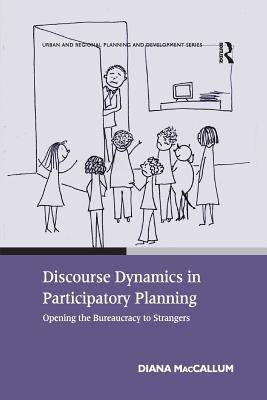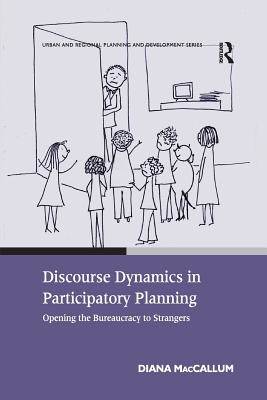
Door een staking bij bpost kan je online bestelling op dit moment iets langer onderweg zijn dan voorzien. Dringend iets nodig? Onze winkels ontvangen jou met open armen!
- Afhalen na 1 uur in een winkel met voorraad
- Gratis thuislevering in België vanaf € 30
- Ruim aanbod met 7 miljoen producten
Door een staking bij bpost kan je online bestelling op dit moment iets langer onderweg zijn dan voorzien. Dringend iets nodig? Onze winkels ontvangen jou met open armen!
- Afhalen na 1 uur in een winkel met voorraad
- Gratis thuislevering in België vanaf € 30
- Ruim aanbod met 7 miljoen producten
Zoeken
€ 67,95
+ 135 punten
Uitvoering
Omschrijving
This book introduces the methodology of critical discourse analysis (CDA) to the study of participatory planning. CDA uses linguistic analysis to elucidate social issues and processes and is particularly suited to institutional practices and how they are changing in response to changing social conditions. Illustrated by two case studies from Australia, it examines the talk between the various participants in a formal stakeholder committee context over five years, during which time they went through several phases of changing power dynamics, conflict and reconciliation. The book demonstrates the value of CDA to this field of research and develops specific techniques and conceptual tools for applying the methodology to the 'formal talk' context of collaborative planning committees. It also sheds light on the dynamics of interaction between 'stakeholders' and bureaucracies - particularly with respect to inherent communicative barriers, power inequalities, and the development of new discursive practices.
Specificaties
Betrokkenen
- Auteur(s):
- Uitgeverij:
Inhoud
- Aantal bladzijden:
- 218
- Taal:
- Engels
- Reeks:
Eigenschappen
- Productcode (EAN):
- 9781138251939
- Verschijningsdatum:
- 11/11/2016
- Uitvoering:
- Paperback
- Formaat:
- Trade paperback (VS)
- Afmetingen:
- 156 mm x 234 mm
- Gewicht:
- 312 g

Alleen bij Standaard Boekhandel
+ 135 punten op je klantenkaart van Standaard Boekhandel
Beoordelingen
We publiceren alleen reviews die voldoen aan de voorwaarden voor reviews. Bekijk onze voorwaarden voor reviews.











